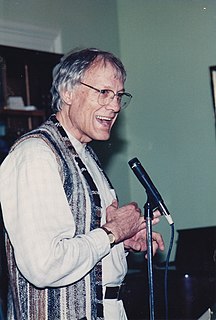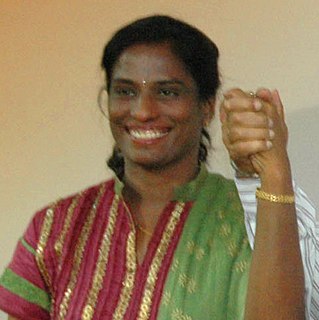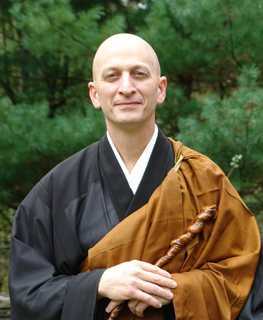A Quote by Rumi
The mind says there is nothing beyond the physical world; the HEART says there is, and I've been there many times.
Related Quotes
The Hindu, the Oriental, says that the physical is but the shadow of the Eternal, of the Truth; and he says 'In order to understand the Truth, I must let the shadow go, and not concern myself with it, but with the understanding of the Eternal.' So he does not concern himself with the physical. He is more concerned with the quality of mind and heart. Hence there is disease, there is disorder, and there is chaos and neglect and the gradual running down of the physical.
Naturalism is the view that the physical world is a self-contained system that works by blind, unbroken natural laws. Naturalism doesn't come right out and say there's nothing beyond nature. Rather, it says that nothing beyond nature could have any conceivable relevance to what happens in nature. Naturalism's answer to theism is not atheism but benign neglect. People are welcome to believe in God, though not a God who makes a difference in the natural order.
One way of saying that is that there is an objective reality beyond our mind. A way to think of this in a philosophic sense is to look between the two great extremes: the idealist philosophy that says mind and consciousness is the only thing and that matter is simply an illusion, or a Maya, the product of mind; and the other extreme, a strict materialist determinism, which says that mind and consciousness is a secondary phenomenon of the collision of matter.
The number one thing I've heard Trump supporters say - number one thing - 'I love him because he says what's on his mind. He just says what's on his mind.' He just says what's on his mind. You go, 'What are your thoughts on his policies?' 'I don't know about his policies. He just says what's on his mind.'
Poetry has an indirect way of hinting at things. Poetry is feminine. Prose is masculine. Prose, the very structure of it, is logical; poetry is basically illogical. Prose has to be clear-cut; poetry has to be vague - that's its beauty, its quality. Prose simply says what it says; poetry says many things. Prose is needed in the day-to-day world, in the marketplace. But whenever something of the heart has to be said, prose is always found inadequate - one has to fall back to poetry.
Mysticism has often been misunderstood as the attempt to escape this simple, phenomenal world to a more pure existence in heaven beyond. This is not mysticism, but Gnosticism. Biblical mysticism is the attempt to exit 'this world' to an alternative reality that pervades the old order. Its goal is to jettison the mind-set that says 'greed is good,' selfishness is normal,' and 'killing is necessary.' Mysticism in biblical terms is not escapism, as so many have caricatured it, but a fight for ethics and social change.
We have two main instruments: the mind and the heart. The mind finds it difficult to be happy, precisely because the mind consciously enjoys the sense of separativity. It is always judging and doubting the reality in others. This is the human mind, the ordinary physical mind, the earth-bound mind. But we also have the aspiring heart, the loving heart. This loving heart is free from insecurity, for it has already established its oneness with the rest of the world.







































